NIL
Ex-Nevada star Cortez Braham Jr. sues NCAA for seventh college season, claiming $500K loss
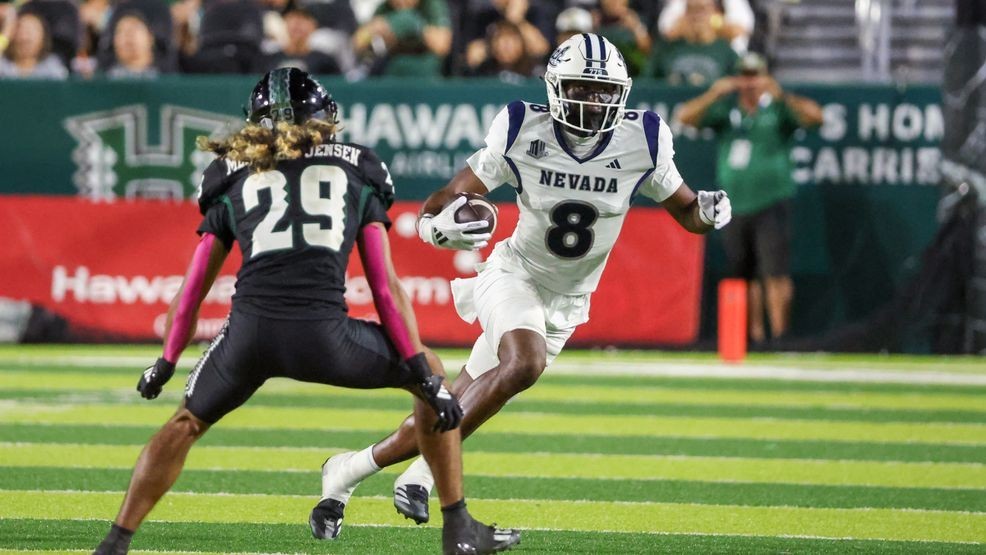
Cortez Braham Jr., who spent last season on the Nevada football team, is suing the NCAA for a seventh year of college eligibility.
A 6-foot-2, 201-pound wide receiver, Braham was among a wave of former junior-college players who starred for the Wolf Pack last season and were seemingly out of eligibility but entered the transfer portal this offseason. But Braham has not committed to a new school as he seeks an additional year of eligibility, which he claims could net him up to $500,000 in name, image and likeness money.
The NCAA has faced a number of lawsuits from athletes with antitrust claims who argue they should not be limited by the NCAA’s eligibility clock, which includes four years of active playing time over a five-season period. The NCAA’s rules have held seasons played at the junior-college level count against four years of NCAA eligibility, although Vanderbilt quarterback Diego Pavia, who at one time was committed to Nevada, received an injunction last December after he argued his JuCo years should not count against his NCAA clock. The NCAA has appealed the court ruling favoring Pavia but granted junior-college athletes a temporary additional year of eligibility in 2025-26.
Many Nevada Wolf Pack athletes have or plan to take advantage of that ruling, which apparently does not apply to Braham because his five-year clock has expired. Braham spent three seasons at Hutchinson (Kan.) Community College from 2019-21 and two at West Virginia from 2022-23 before arriving at Nevada last season. Braham redshirted at West Virginia in 2023 after playing in three games and 2020 did not count against eligibility due to COVID-19’s impact, the latter making him eligible for the Wolf Pack last season as his NCAA clock was extended to six years. Braham also was committed to Buffalo at one point but did not play for the Bulls.
Braham played three seasons at Hutchinson, two at West Virginia and one at Nevada, so he is seeking a seventh active season over a seven-year period. The Baltimore, Md., native initially intended to transfer to West Virginia for the 2021 season but had a GPA of 2.47, below the minimum requirement of 2.5 for a JuCo-to-FBS transfer. The lawsuit argues that is an unfair standard given given the academic requirement to transfer from one four-year school to another within the NCAA is a 2.00 GPA. Braham raised his GPA enough before the 2022 season to transfer to West Virginia where he played sparingly that season before having a career year at Nevada in 2024.
Braham started all 13 games for Nevada last season and was named All-Mountain West honorable mention after finishing second on the team in receptions (56), receiving yards (724) and touchdown catches (four). He took part in Nevada’s senior day ceremonies and believed his career to be over prior to Pavia’s lawsuit.
Braham’s lawsuit alleges Nevada, through its compliance staff, has repeatedly refused to file a “a waiver request so that the NCAA can exercise its discretion to waive the Five-Year rule and the JUCO transfer GPA requirement as it applies to Braham.” The lawsuit says the university told Braham he should “find a lawyer and file a lawsuit against the NCAA instead of looking to the school for help” and that litigation was the only path available for Braham’s quest for an additional year of eligibility in 2025. NCAA rule states any school Braham could transfer to would be eligible to file a waiver on his behalf.
The lawsuit argues Braham not being granted an additional year of eligibility would “permanently deprive him of a once-in-a-lifetime NIL contract opportunity worth nearly $500,000 and the opportunity to enhance his career and reputation by playing another year of Division I football. Additionally, this will harm Braham’s lifetime of hard work in the classroom and on the football field that he has pursued to even be considered for these opportunities. The NCAA’s anti-competitive conduct, coupled with his former university affiliation’s unreasonable denial of Braham’s ability to request a specific NCAA waiver, is resulting in irreversible damage.”
At least two Nevada transfers who were seniors last season got an additional year of eligibility due to Pavia’s injunction and have signed with power-conference schools this offseason, those being cornerbacks Michael Coats Jr. (West Virginia) and Chad Brown (Purdue). It is unknown if they received NCAA waiver requests from Nevada as Coats is entering his sixth college season and Brown his seventh, meaning they have seemingly navigated around the NCAA’s five-year eligibility window to play in 2025.
If Braham was granted an additional year of college eligibility, that would not come at Nevada as Braham entered the transfer portal and has reportedly taken recruiting visits or planned visits with Kentucky, Kansas, Memphis and Arkansas. He remains unsigned and did not participate in any school’s spring camp.
The NCAA and junior-college system are governed by separate entities with athletes arguing their time in the National Junior College Athletic Association should not count against their eligibility in the NCAA. The lawsuit argues NCAA rules do not prohibit former pro athletes from profiting from NIL in Division I football, citing Chris Weinke’s time as a Heisman Trophy-winning Florida State quarterback after a six-year professional baseball career, saying holding junior-college players to a higher standard in eligibility considerations is unfair.
The lawsuit, which was filed Tuesday and first reported by Boise State assistant professor Sam C. Ehrlich, was drafted by Reno-based attorney Brandon D. Wright as well as Gregg E. Clifton, from Phoenix. Braham is seeking a court declaration and an injunction. Presiding over Cortez vs. NCAA is U.S. District Judge Miranda M. Du and U.S. Magistrate Judge Craig S. Denney of the Nevada federal district court.
You can read the entire lawsuit below.
NIL
Ohio State football has set a new record with its unanimous All-American selections
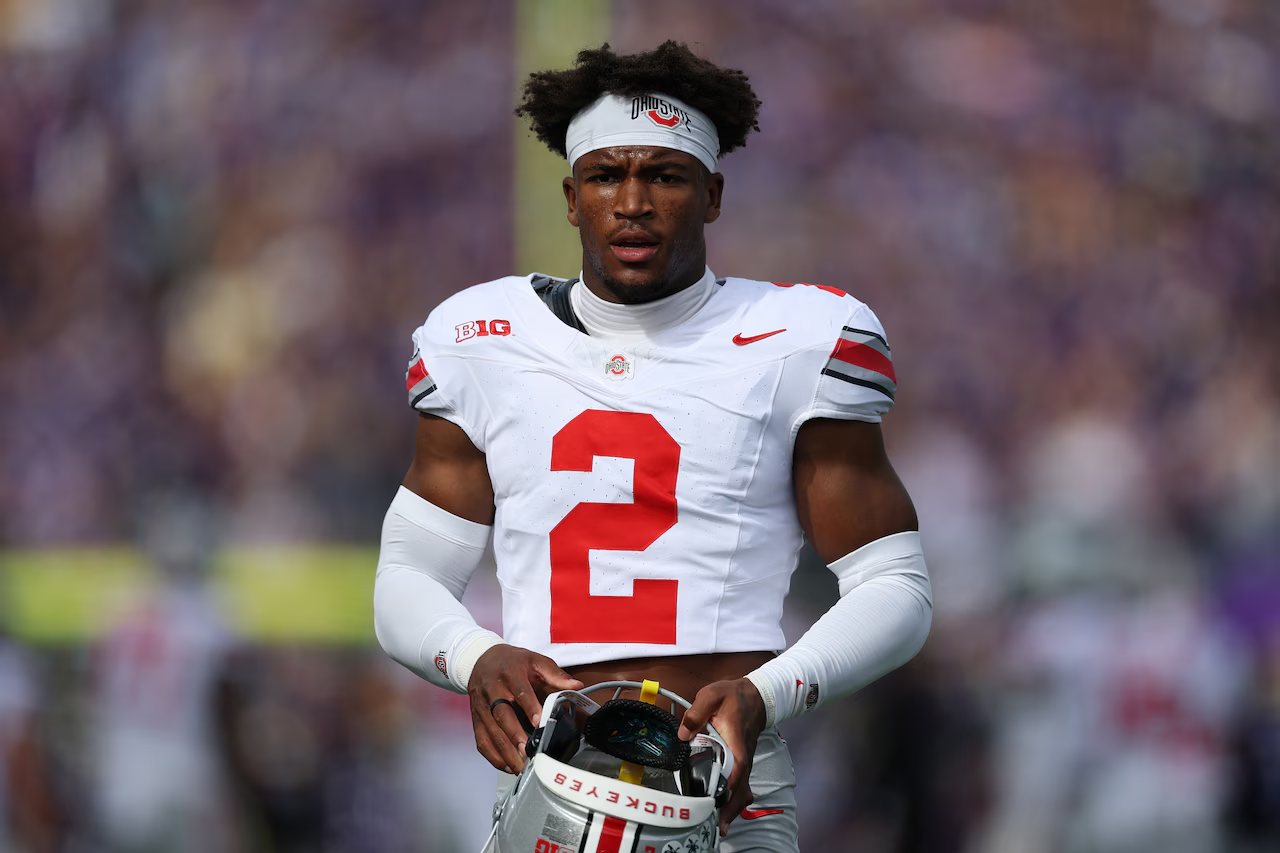
COLUMBUS, Ohio — Receiver Jeremiah Smith, safety Caleb Downs and defensive tackle Kayden McDonald have earned first-team All-American honors from all five major publications this postseason, officially making them unanimous selections.
In doing so, the collection of stars helped Ohio State football set a record.
The Buckeyes now have a college-football best 42 unanimous All-Americans in program history.
Alabama, which entered the season with a record 41 unanimous selections, had none. Notre Dame, which was tied with OSU at 39 coming into the season, had two (Jeremiyah Love, Leonard Moore).
This is the first time Ohio State has ever had three unanimous selections in the same year.
| Five major All-American publications |
|---|
| Walter Camp Football Foundation |
| Associated Press |
| American Football Coaches Association |
| Sporting News |
| Football Writers Association of America |
Downs is the first defensive player in program history to earn multiple unanimous All-American honors.
He’s in his second campaign at OSU after transferring from Alabama. Along with his All-American honors, Downs won the Lott IMPACT Trophy and Jim Thorpe Award this year.
Smith is also in his second season with the Buckeyes after arriving as one of the most highly-touted recruits in program history. He’s lived up to the hype, highlighted by his 80 receptions for 1,086 yards and 11 touchdowns this season.
McDonald has been a fixture in the middle of Ohio State’s defensive line, collecting 57 tackles, three sacks and two forced fumbles. He’s anchored a unit allowing only 84.46 rushing yards per game.
NIL
Joel Klatt admits his viral NCAA Tournament stance ‘was a terrible take’
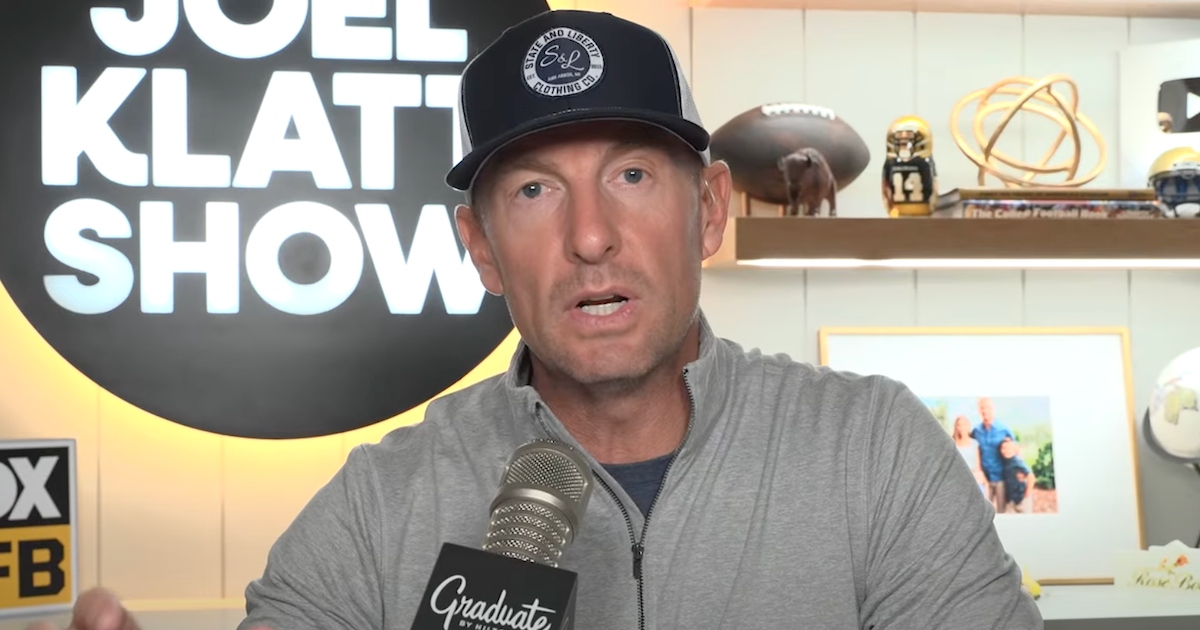
FOX Sports analyst Joel Klatt drew instant scrutiny this week when he made the claim that the only reason the Group of Five was in the College Football Playoff was the threat of litigation. He also suggested, in a parallel vein, that the NCAA basketball tournament isn’t an effective way to crown a champion in the sport.
He railed against Cinderellas a bit and just generally came off seeming a touch antagonistic toward both college basketball and the G5. On Thursday, he apologized for his delivery.
“I had an interesting take. It was a bad take. It was a terrible take,” Joel Klatt said on The Joel Klatt Show. “I have this take about the NCAA Tournament that is a bad take. And it’s a hot take. But it’s what I believe about the NCAA Tournament.
“Now, to be fair, what I said on their show on Monday morning early was sloppy and worded wrong. So it was kind of like I landed the plane but it was in a corn field and so like we had to hit the eject and the plane didn’t crash necessarily. Here’s the deal: I did not articulate what I wanted to articulate.”
He later spent a few minutes on his podcast further outlining his thoughts on Thursday morning. But has his stance really changed?
“Here’s the take: The NCAA basketball tournament, if the objective was to crown the best basketball team of the college basketball season, then it’s a bad format,” Klatt said. “And because of that, then it’s not fair, is what I said. And I said it is a joke and it’s the dumbest, and that’s obviously going to grab headlines. That’s stupid of me to use those terms.
“But the structure of the NCAA basketball tournament, its objective is entertainment, it’s meant to be a gauntlet. So the point is the best college basketball team for the year doesn’t always win the NCAA basketball tournament. That tournament is set up to just crown its own champion. It’s a made-for-TV, entertainment event. And it’s great. And by the way, I do love the NCAA basketball tournament. But if you’re asking me if it’s structured properly to crown the best team of the season, then the answer is no.”
Klatt would admit his opinion is unpopular. But he was unflinching in defending the heart of his point, even if not his delivery of the initial comments.
“Now… it’s a hot take. It’s a bad take,” Klatt said. “Not everyone’s going to share that with me, because everyone loves the entertainment value of Cinderellas in the NCAA basketball tournament. But there’s the thing, if you’re actually honest with yourself, you love the Cinderellas early, but late, you want to see the best teams playing against each other. You want to see incredible regional finals. You want to see Kentucky and Duke with (Christian) Laettner hitting it at the buzzer. Why? Because that’s greatness. So I root for good teams to become the participants late in the tournament.”
Here’s where the argument starts to come back around to the Group of Five and the College Football Playoff a little more. The links that were perhaps missing or not well-enough established in Joel Klatt’s initial go-round were filled in.
“In college football, ours is much more selective. We have 12 teams of 130-whatever in college football,” Klatt said. “So once we’re down to 12, well, now we don’t really want Cinderellas. And I will maintain that opinion. You can disagree and more power to you.”
As for the NCAA basketball tournament, perhaps it was just a case of Joel Klatt conflating two ideas and two different opinions that didn’t need to intersect. Maybe.
Still, the analyst stuck to his guns on his overall points. Especially with the G5 in the playoff.
“The way I said it on Monday morning was so dumb. Dumb take,” Klatt said. “And I prefaced it by saying it’s like the hottest of all takes. There’s 68 teams in the NCAA basketball tournament. So yeah, people love the Cinderellas, but you want the great teams playing late. That makes it awesome in the Final Four and the regional finals. And I’m saying we’re already at that point in college football.”
So what should the Group of Five do if they’re no longer welcome in the playoff? Well, Klatt suggested an alternative. It’s likely to be controversial. But it’s not something totally out of the realm of possibility, either.
“By the way, I’m not a Group of Five hater,” Klatt said. “I think it would be better for the Group of Five if they played their own championship, so that we could celebrate them. Focus on them. More teams could be involved, more fanbases could be involved. That would be awesome. I think that would be great for everyone. Not having to go up to Autzen and face one of the best five teams in the country. That’s impossible for JMU. … I will just say I think it would be better if they played their own playoff.”
NIL
Marshall Faulk adds Les Miles’ son to football staff

BATON ROUGE, La. – Marshall Faulk continues to assemble a staff with deep Power Four ties, as the HBCU program at Southern University prepares to hire Ben Miles, the son of former LSU head coach Les Miles, as tight ends coach and recruiting coordinator.
The move was first reported by Matt Zenitz of CBSSports and represents another notable addition to Faulk’s growing staff in Baton Rouge. For Miles, the hire marks a return to Louisiana and a new chapter inside Black college football.
Ben Miles arrives at Southern after serving as a graduate assistant at Florida State, where he gained experience working within one of college football’s most resource-rich environments. Before joining the Seminoles, Miles worked on staff at Texas A&M, adding further exposure to high-level recruiting operations and player development.
Now, he brings that experience to an HBCU setting under one of the most recognizable figures in football.
A Baton Rouge Return
The hire carries added symbolism because of Miles’ family ties. His father, Les Miles, spent more than a decade as head coach at LSU, leading the Tigers to a national championship in 2007 and becoming one of the most recognizable figures in the program’s history.
While Ben Miles is carving out his own coaching path, his return to Baton Rouge places him back in a city deeply connected to his football roots. This time, however, the setting is Southern University, where Faulk is working to elevate the Jaguars’ profile nationally.
Recruiting Emphasis
In addition to coaching tight ends, Miles is expected to serve as Southern’s recruiting coordinator. That role aligns with Faulk’s stated emphasis on expanding Southern’s reach in modern recruiting landscapes shaped by NIL, facilities, and national visibility.
Athletics Director Roman Banks has been clear that Southern must compete differently in today’s college football environment. Adding staff members with Power Five experience supports that goal and enhances Southern’s credibility with prospects and families.
Miles’ background at Florida State and Texas A&M provides insight into recruiting operations at the highest level. That knowledge could prove valuable as Southern seeks to attract and retain talent in an increasingly competitive space.
Staff For Marshall Faulk Takes Shape
Since being introduced as head coach, Marshall Faulk has leaned heavily on relationships, trust, and experience while building his staff. The additions of Todd Lyght and now Ben Miles reflect a blend of NFL pedigree, Power Five exposure, and long-term developmental focus.
Southern is not simply filling roles. The Jaguars are assembling a staff designed to teach, recruit, and compete with purpose.
As Faulk’s first season approaches, each hire adds another layer to what is becoming one of the most closely watched coaching transitions in the HBCU football landscape.
The post Marshall Faulk adds Les Miles’ son to football staff appeared first on HBCU Gameday.
HBCU Gameday
This story was originally published December 18, 2025 at 2:25 PM.
NIL
Texas’ Michael Taaffe reveals ‘different’ approach to navigating NIL

During his time at Texas, Michael Taaffe built an impressive social media following with more than 80,000 followers across Instagram and X. That platform is important in the NIL era – but Taaffe took a “different” approach.
Taaffe didn’t ink many high-profile deals during his time at Texas. He was part of Sonic’s activation along with some Longhorns teammates and Texas A&M players, and he joined Seat Geek’s initiative ahead of last year’s College Football Playoff.
SUBSCRIBE to the On3 NIL and Sports Business Newsletter
Instead, Taaffe’s focus remained on the big picture, which included his efforts with Texas Against Fentanyl. That’s why he wasn’t necessarily active in the NIL space with deals.
“I think NIL, for me, has been a little bit different because there’s opportunities that I have taken to get a little cash in the wallet, in the pocket,” Taaffe told On3 via Zoom on behalf of Allstate. “But I think, would you much rather have this little success? This little financial success that at the end of the day, when you have to go buy a house, when you have to get a car, when you have to pay rent, this little success isn’t going to matter in the long-term? Or, would you rather have success and significance to the University of Texas that will last 100 years? I chose that route.”
Taaffe focused on giving back throughout his time at Texas. His efforts in substance abuse prevention helped him win the Wuerrfel Trophy, the premier award for community service. He helped raise nearly $60,000 for Texas Against Fentanyl through a fundraiser, which he said helped cover the organization’s yearly budget.
Taaffe’s efforts went beyond substance abuse awareness, though. He also helped raise more than $100,000 for the Texas Flood Relief Foundation after the flooding at Camp Mystic earlier this year and has visited the Dell Children’s Hospital to distribute food.
But while other athletes star in ads or promote different products through NIL, Michael Taaffe wanted the ability to have a platform to make a difference. He understands why his peers have a different approach, though. It just didn’t fit with his goals.
“I don’t fault anybody for the routes they take,” Taaffe said. “But I just knew that I believe being significant is way more important than being successful.”
NIL
Michael Wilbon claims Kalen DeBoer will leave Alabama for Michigan with loss in College Football Playoff opener

The College Football Playoff gets underway Friday night as Alabama heads to Norman to take on Oklahoma. But to ESPN’s Michael Wilbon, there’s even more at stake for Crimson Tide coach Kalen DeBoer.
DeBoer’s name has been the subject of rumors throughout the offseason in the coaching carousel. Most recently, he received questions about the opening at Michigan following Sherrone Moore’s firing for cause, though he made it clear he intends to be at Alabama in 2026.
However, Wilbon didn’t sound as convinced. He predicted Alabama would not only lose to Oklahoma on Friday night, but DeBoer would also be on a flight to Ann Arbor to take the Michigan job afterward.
“Let me tell you about … two schools that could be in the coaching carousel after [Friday night],” Wilbon said Thursday on Pardon The Interruption. “Because when Alabama loses to Oklahoma – let me say it again, when Alabama loses to Oklahoma – the coach of Alabama, half the people in the state will want to run him out. And he’ll be on the carousel – oh, wait, that’s a G5 being flown to Ann Arbor, Mich., where he has said, ‘Oh, no. I ain’t got no interest in that.’ He’ll have interest [Friday night].
“And then, Alabama will be in the coaching carousel because they’ll be looking for a coach. … The Alabama coach is going to have a job-on-the-line situation in 24 hours and then, headed to Michigan once he loses. And then, Alabama’s looking. Then, what are you going to say?”
During a press conference this week ahead of the College Football Playoff opener, Kalen DeBoer was directly asked if he intended to be Alabama’s head coach next season. He responded, “Yes.”
Earlier in that press conference, DeBoer received a question about the rumors surrounding him. He again spoke highly of his tenure at Alabama so far and made it clear he’s happy in Tuscaloosa.
“A lot of the same things I said before, a couple weeks ago, when asked really the same question, just feel completely supported,” DeBoer said. “My family loves living here. Just all the things that we continue to build on, love the progress. Haven’t talked with anyone, no plans of talking with anyone. So just, I think that’s a lot of what I said a couple weeks ago, and continues to be the same thing.
“Feel strong about it. And our guys, if there’s been any distraction, I haven’t seen it, haven’t felt it. I’m really proud of the way they’ve handled whatever noise is out there. And again, we probably all season long, have dealt with enough noise to where it wouldn’t surprise me on how they handle this.”
NIL
Matt Rhule Addresses Dylan Raiola, NIL Investment and the Portal Era

Matt Rhule sounded comfortable, confident, and in control during his interview Wednesday night with the Husker Radio Network ahead of Nebraska’s bowl matchup against Utah.
At times relaxed, “Just Matt,” as he put it when the hat turned backward, Rhule covered a wide range of topics that collectively outlined where the program stands and where it’s headed over the coming months.
From his former starting quarterback and the transfer portal to staff changes and Nebraska’s evolving financial status, Rhule touched on nearly everything Husker fans want to know during an offseason filled with uncertainty.
With that in mind, here’s what Rhule said about the state of his program heading into his fourth offseason in Lincoln.
Sources: Nebraska quarterback Dylan Raiola intends to enter the NCAA transfer portal. He’s a true sophomore who has two years of eligibility remaining. He threw for 18 touchdowns, 2000 yards and completed 72.4% of his passes this year. pic.twitter.com/Frt7QgFN57
— Pete Thamel (@PeteThamel) December 15, 2025
Dylan Raiola, the portal era, and Nebraska’s quarterback outlook
Making his first public comments on the subject since the news broke on Dec. 15, Rhule didn’t shy away from addressing Dylan Raiola’s decision to enter the transfer portal. Instead, the Huskers’ head coach framed it as a reality of modern college football.
“I think all of our fans, all of our staff, we all just have to embrace it,” Rhule said. “We’re in the portal era. The portal will giveth and the portal will taketh away. It’s just the new normal.”
Raiola’s impact on the program wasn’t dismissed. As the first five-star quarterback to commit to Nebraska, Rhule said, he helped shift national perception around the program.

“He was the first five-star to come here and signal to everybody, ‘Hey, it’s cool to come to Nebraska,’” Rhule said. “And I think you’ve seen some players follow suit.”
Since then, December of 2023 to be exact, the Huskers have been able to sign two other five-star recruits. Williams Nwaneri (No. 6 overall recruit) was ranked one spot higher in the 2024 class than Raiola and eventually joined the Huskers’ roster via the transfer portal prior to the 2025 season. And on Dec. 5 of this year, Danny Odem (No. 31 overall recruit) signed his letter of intent to join the Huskers’ roster in 2026.
While acknowledging Raiola’s desire for a fresh start, Rhule also emphasized Nebraska’s preparedness moving forward.
“If he needs a fresh start, I’m going to pray that he finds the right place and has success,” Rhule said. “With that being said, there’s a lot of great quarterbacks out there and a lot of guys want to play at Nebraska.”

Following his comments on Raiola, Rhule made it a point to publicly reinforce his belief in the quarterback currently on Nebraska’s roster, TJ Lateef.
“We have a great quarterback in Lateef,” Rhule said. “I don’t think there’s a guy on our roster that doesn’t believe TJ is a starting quarterback.”
While praising Lateef’s mindset and approach, the head coach noted that his first-year player has embraced responsibility rather than shying away.
“TJ has no confidence issues and he doesn’t make excuses,” Rhule said. “He doesn’t blame other people. He knows he can be our starting quarterback, and he’s going to do a great job against Utah. He’s going to win a lot of games for us at the University of Nebraska.”
Doubling down.
Nebraska will face Utah in the 2025 @LasVegasBowl.
🎲ℹ️ https://t.co/6KjRTnx3ms pic.twitter.com/ifFIDYHnec
— Nebraska Football (@HuskerFootball) December 7, 2025
While a vote of confidence may be exactly what his new signal-caller needs, Rhule also reiterated the importance of depth at the position, particularly in today’s college football landscape.
“We’ll have great quarterbacks in that room,” Rhule said. “You need more than one. People want to play for Dana Holgorsen. They want to play for Glenn Thomas.”
If one thing over the offseason is true, Rhule isn’t interested in keeping his program at the status quo. He wants the players on his roster to have the ability to develop into the players they want to be, and he’s putting new coaches in place to do just that.

Single portal window, financial outlook, and Nebraska’s changing staff
While the transfer portal remains a major tool, Rhule emphasized that Nebraska’s approach, now and always, will be to develop players first. And amid changes to the portal window, it has allowed the coaching staff to spend more time focused on player development.
“Historically, in December you’re on the road recruiting,” Rhule said. “But now, we’re all able to be out there and we are focused. We’re focused on getting our team better.”
With a roster like Nebraska’s, currently featuring 91 scholarship players listed as underclassmen, development is exactly what his program needs. And now, with a new-and-improved recruiting schedule in his advantage, the Huskers’ head coach is using his time to help his younger guys take the next step.

Rhule also noted that much of Nebraska’s roster is made up of players the current staff recruited but have yet to be given their opportunity.
“I believe they’re good players,” Rhule said. “We were a part of recruiting them. They’re our guys. Before we start looking to the portal, we want to make sure we get a real evaluation of our guys and what role they can fill.”
As encouraging as that should be, and is, the head coach made it clear his comment doesn’t mean Nebraska will shy away from portal additions come January.
“We’re going to do both,” Rhule said. “We want guys to burst onto the scene the way Emmett Johnson did. But we also want to go out and get players in the portal that can help us.”
He finished out the topic by saying, “Our job is to put together the most competitive team full of great players. Guys can’t be afraid of that.”

Perhaps the most interesting portion of Rhule’s interview centered on Nebraska’s financial standing entering the upcoming offseason. To this point in time, the Husker fan base has been told their favorite program is competitive, but after speaking with Rhule, the Huskers Radio Network was able to discover that 2026 will be vastly improved.
“This will be the first year that we’re at the higher end of the market,” Rhule said. “We might not be where Texas and Texas A&M are, but we’re right there. We’re right below that.”
For context, both of the aforementioned schools have been able to compete at the highest level of college football in recent years. Both programs have or will compete in the College Football Playoff, and don’t appear to be handicapped financially in any way.

Rhule credited athletic director Troy Dannen for positioning Nebraska to compete financially, both in retaining talent and adding impact players.
“For every player that leaves and goes and has four or five sacks, we don’t want to lose those guys,” Rhule said. “We want to keep the players that can help us.”
But from Rhule’s perspective, it isn’t just Dannen that helps the Huskers compete for the nation’s top talent. He also highlighted Nebraska’s fan base as a unique advantage in the NIL space, particularly through local business partnerships and “true NIL” opportunities beyond revenue sharing.
“It’s a differentiator for us,” Rhule said. “It’ll help us in the portal. But make no mistake — having money does not mean you’re going to have a good team. But if you don’t have money, it’s pretty hard to have a good team.”
The head coach finished his comments bluntly, without offering an excuse. “There is no in between,” Rhule added. “Either we do this to be successful, or we don’t, and we become a Group of Four team.”

The other aspect of having a competitive team is having competent coaches on the staff. Following changes made after the regular season, Rhule described the transition as an opportunity for fresh evaluation across his roster.
“They’re getting a fresh look at these guys,” Rhule said, plainly. After additions were made, the head coach made it known how big an opportunity securing a sixth win in 2025 gave the Huskers to further assess needs moving forward.
With the dismissal of former defensive line coach Terry Bradden, Rhule himself has taken over defensive line duties, embracing a hands-on role during bowl prep. Nebraska defensive lineman Riley Van Poppel was also rewarded with a Blackshirt ahead of the matchup with Utah after playing in every contest this season and earning two starts.

Rhule praised new defensive coordinator Rob Aurich for his ability to lead and develop players. He even suggested the new leader of the defense has taught him some new tricks.
“It doesn’t matter the scheme,” Rhule said. “It matters that your players know the scheme and can adapt.” With recent comments from interim defensive coordinator Phil Snow suggesting the Huskers struggled knowing responsibilities in 2025, Rhule’s comments offered confidence that under Aurich, that won’t be the case.
On new offensive line coach Geep Wade, Rhule emphasized physicality and confidence as key traits he wants to see moving forward. Something the Huskers’ head coach saw from Wade’s former units on tape.
“I want them playing with a level of violence and physicality that only comes from confidence,” Rhule said. With just two of Nebraska’s starting offensive linemen set to return, Wade will have the ability, either by financially obtaining the players needed or by developing them, to kickstart the mindset change.

Quick Hits
- On Nebraska continuing to work on its current roster ahead of the January transfer portal window, Rhule said the focus right now is on retention. “At this time right now, we’re doing a lot of work with our current roster in terms of re-signing guys to contracts and signing guys up for next year.”
- On young running backs Mekhi Nelson and Isaiah Mozee potentially stepping into larger roles, Rhule said the belief inside the program is already there. “If you asked every guy on our team what they think about Mekhi Nelson and Isaiah Mozee, I think they’d say it’s kind of like a ticking time bomb. They’ve been waiting for their opportunity to explode.”
- On what makes new defensive coordinator Rob Aurich a good man for the job at Nebraska, Rhule said, he’s got characteristics similar to Tony White. “Because he’s had two huge defensive turnarounds as a first-year coordinator. That to me is the ultimate- It’s what Tony White did when he got here.”
- On what being more competitive financially will do for his program, Rhule said they will not be handicapped. “We spent two and a half years trying to reestablish the foundation of the program. Make no mistake, it was rocky. And I can turn my attention now more to football.”
More From Nebraska On SI
Stay up to date on all things Huskers by bookmarking Nebraska Cornhuskers On SI, subscribing to HuskerMax on YouTube, and visiting HuskerMax.com daily.
-

 Motorsports1 week ago
Motorsports1 week agoSoundGear Named Entitlement Sponsor of Spears CARS Tour Southwest Opener
-
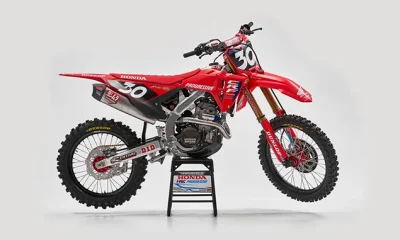
 Motorsports3 weeks ago
Motorsports3 weeks agoJo Shimoda Undergoes Back Surgery
-

 NIL3 weeks ago
NIL3 weeks agoBowl Projections: ESPN predicts 12-team College Football Playoff bracket, full bowl slate after Week 14
-
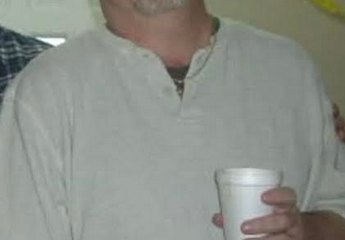
 Rec Sports3 weeks ago
Rec Sports3 weeks agoRobert “Bobby” Lewis Hardin, 56
-
Sports3 weeks ago
Wisconsin volleyball sweeps Minnesota with ease in ranked rivalry win
-

 Motorsports1 week ago
Motorsports1 week agoDonny Schatz finds new home for 2026, inks full-time deal with CJB Motorsports – InForum
-
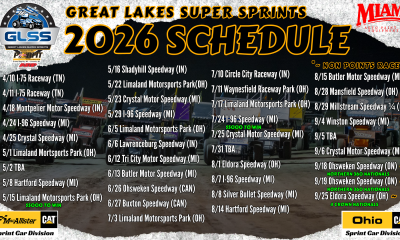
 Motorsports3 weeks ago
Motorsports3 weeks agoIncreased Purses, 19 Different Tracks Highlight 2026 Great Lakes Super Sprints Schedule – Speedway Digest
-
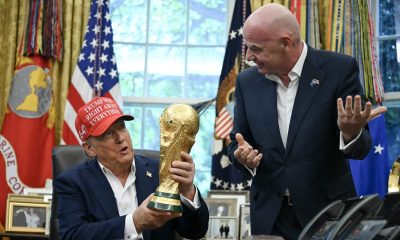
 Rec Sports2 weeks ago
Rec Sports2 weeks agoHow Donald Trump became FIFA’s ‘soccer president’ long before World Cup draw
-
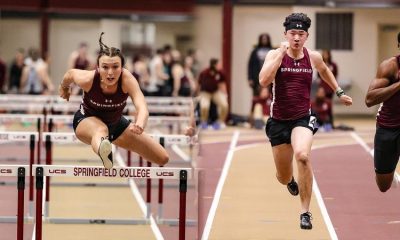
 Sports2 weeks ago
Sports2 weeks agoMen’s and Women’s Track and Field Release 2026 Indoor Schedule with Opener Slated for December 6 at Home
-

 Motorsports3 weeks ago
Motorsports3 weeks agoMichael Jordan’s fight against NASCAR heads to court, could shake up motorsports

































